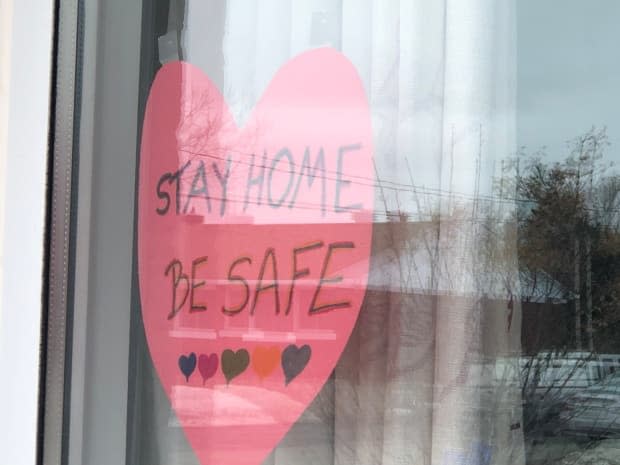Sask. health minister defends decision to not make self-isolation mandatory after COVID-19 diagnosis

Saskatchewan's health minister says the province is relying on people diagnosed with COVID-19 to be personally responsible for preventing the spread of the virus.
"We're putting the responsibility back on the individual to be able to make sure that they isolate," Saskatchewan Minister of Health Paul Merriman told CBC Radio's The Morning Edition.
"Then we're also sitting down and explaining what that isolation looks like and making sure that they are adhering to that, that they're self-monitoring."
Self-isolation in Saskatchewan is currently not enforceable under a public health order for people who have been diagnosed with COVID-19 or may have been exposed to the virus.
During the majority of the pandemic, people were required to self-isolate under a public health order if they were diagnosed with COVID-19, came in contact with someone who was diagnosed with COVID-19, were awaiting results of a COVID-19 test or had travelled internationally.
People who violated the order were subject to a $2,800 fine.
However, mandatory self-isolation ended on July 11 — along with all of the other COVID-19 restrictions — after the province deemed enough first shots of vaccine had been administered.
That means someone who tests positive for COVID-19 can now enter a public place or large gathering without legal repercussion.
WATCH | Health minister Paul Merriman spoke with host Stefani Langenegger on The Morning Edition:
Asked about making self-isolation mandatory for people who have tested positive, Merriman said people should be responsible.
"What would be the responsibility of the individual at that point?," Merriman said. "How long does government have to keep enforcing this when the individual has a responsibility to be able to make that decision and make an informed decision on what they need to do?"
Merriman did say a localized health order could be implemented in places that are experiencing an outbreak.
"We have had public health orders that have come out that have been very localized in the past," he said, using care homes as an example.
"We would have those in place but, again, it comes down to education and the responsibility of the individual to be able to say, 'Ok, I tested positive for COVID. What do I need to do? Do I need to self isolate?'"
Merriman didn't rule out the possibility of making self-isolation mandatory again provincewide, but he said there would need to be further discussion with public health officials.
LISTEN| Stefani Langenegger's full conversation with Minister Merriman:
Public health order needed in northern Sask.: FSIN
Saskatchewan's far north has the highest COVID-19 case rate in Canada, according to data from Health Canada.
There were 376 known active cases in the province on Wednesday, 190 of which are in northern Saskatchewan.
Black Lake First Nation has officially entered lockdown as a result of a rising COVID-19 outbreak and an outbreak was declared on the Buffalo River Dene Nation on July 23.
The Federation of Sovereign Indigenous Nations (FSIN) has since called on the province to do more to stop the spread of COVID-19.
FSIN said the virus is spreading quickly on Buffalo River Dene Nation due to the lack of public health orders.
"Chief Elmer Campbell and his health staff are running out of options and the death of our most vulnerable could increase unless reinforcements are brought in," said FSIN Chief Bobby Cameron in a news release issued Monday afternoon.
Merriman said the province is working with local public health officers in the north to make sure that "everybody is well educated about what is going on."
"Just because there's no public health order that doesn't mean that they still can't do social distancing, hand washing and making sure that they limit their contact while they're in their communities."
Merriman said the province is also providing northern communities "an abundance of help" such as contact tracing, vaccination efforts and offering help with public education.
He also noted that areas seeing an increase in cases also have "very low vaccine uptake."
However, he said there are almost 42,000 vaccines ready to be administered in the north.

